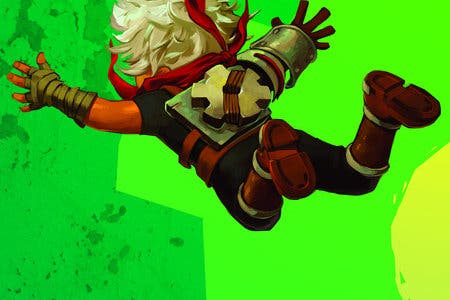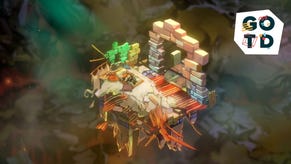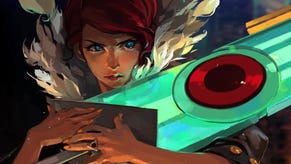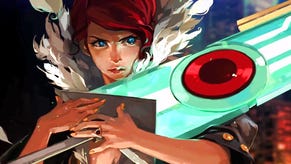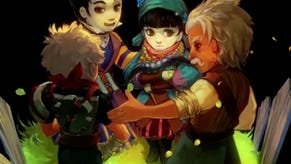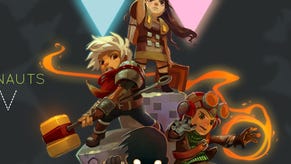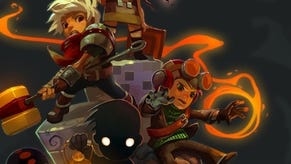Games of 2011: Bastion
Moving on.
About 20 years ago, "closure" became a thing that we wanted after something bad happened. When someone dies, we are told that the grieving parties desire closure - that they want to take the death, put it in a box, and tape the edges shut on that sucker until it is good and sealed.
There's no closure in Bastion. The loss that opens the game is too huge to contain. The hero, a stoic white-haired boy named The Kid, wakes up from a night's sleep to find that the world outside his bedroom has vanished, replaced by a three-dimensional fog of emptiness.
Practically everyone is dead, but that's mere prologue. You're alive. So it's a question of what you're going to do with yourself. As you look past the threshold of your bedroom doorway into the void, the only reasonable option is to walk out there. The perverse reality is that even when the path ahead appears to hold literally nothing for you, you've got to go there anyway. That's The Kid's lot, the burden of the living.
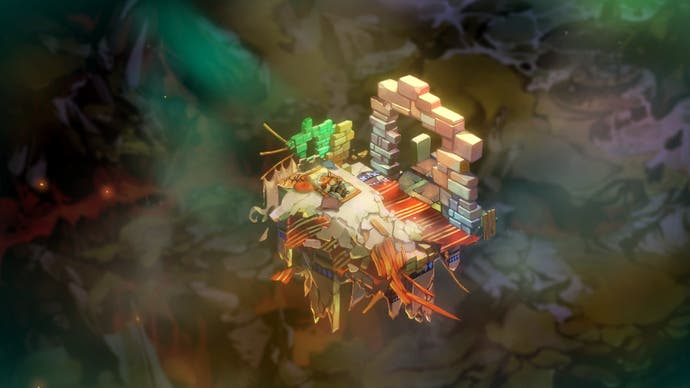
And when you walk out that door, fragments of the world assemble themselves beneath your feet. It's the signature visual effect of a pretty game, and there's a parallel in another landmark 2011 game, Catherine. Both games have you navigate a world that floats amid a backdrop of indeterminate space. In Bastion, chunks of terrain rise up as you go. In Catherine, the chunks fall away as you go.
The basic message is the same. Standing still is not a viable option. In every game, as in every life, there are choices that lead to success and lead to failure. If that's the first law of gaming, then Bastion and Catherine explore the unspoken zeroth law: you've got to choose something.
The difference between the two games is that Catherine emphasises the negative consequences of the zero law - if you don't keep your life moving forward, your own fears and insecurities will grow and consume you - while Bastion focuses on the affirmative side. When The Kid advances in Bastion, his world comes alive with every step. It's not like you keep going in spite of the fact that there's nothing there - you keep going because there's nothing there.
In other words, the world of Bastion is one where living is a fundamentally creative act. The Kid "makes" the journey in more than sense of the word. I know because Rucks told me.
Rucks is the leathery old guy who narrates all of the action in the game. I say he's old, but Rucks has an ageless quality. He speaks with the weight of someone who's always been there and plans to stick around for a while because hell, why not? Maybe somebody will show him something he hasn't seen before. It could happen.
The timeworn sage comments on your exploits, in the present tense, as if we're all sitting around a campfire listening to him weave The Story of The Kid. He fills in the backstories of each world, tells us where the monsters come from, sets up major battles, and so on.
As with all good storytellers, Rucks makes the smaller moments as vivid as the big ones. One of his most memorable lines comes early in the game. If you take a break from demon slaying to bust up some nearby crates with your new hammer - and c'mon, nobody can resist a pile of smashable junk - Rucks says, "Kid just rages for a while."
The line is funny because we consider crate smashing to be an extracurricular activity of sorts. We don't expect Rucks to pipe up here, because we're not "advancing the story." Except of course we are. The occasional inanimate-object assault is just as much a part of The Kid's story as a frenzied boss fight. We never stop creating.
The Kid's creations carry an extra portent because they come in the aftermath of that huge, world-obliterating loss, which Rucks calls The Calamity. The specific details of The Calamity are hard to discern for much of the game, but we do know it's the disaster that blew The Kid's universe into wisps.
As it happens, this aspect of Bastion's story resonated with real-world events, as the game was released just a few months after the Tohoku earthquake and tsunami disfigured huge swaths of Japan's eastern coast. The tangled debris fields of The Kid's realm often evoke the before-and-after photos that were splashed across news coverage of the tragedy-the ones that showed homes, roads, farmland, and industry in the "before" shot, replaced by nothing in the aftermath. It was a real-life Calamity, made all the more inconceivable by its actuality, and its survivors were left staring into nothingness.
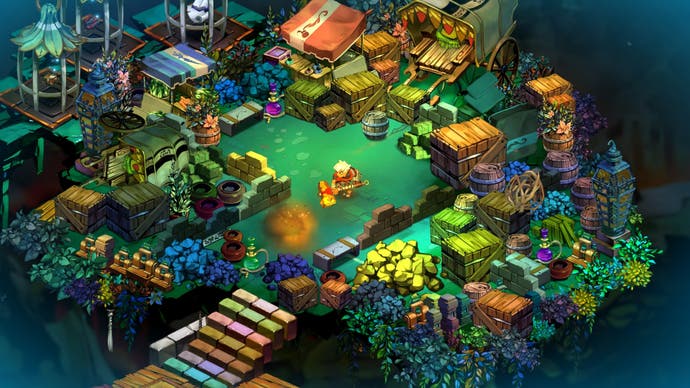
This is where The Kid lives, wading through the detritus of catastrophe. You spend most of the game battling demons of the past - spectres driven by some lingering anguish or bitterness. But then, after all the fighting is over, the true reckoning arrives.
History happens, and then we make something of it. When people die, and all their worldly vestiges crumble or fade away, whatever spirit remains must be the soul of the past. And in one of the universe's strangest ironies, the nature of that soul is determined by the living. The Kid lost almost everyone; that happened. By choosing what to do next - what lesson to draw from The Calamity - he determines what it all means.
So in the final moments on the hovering island called The Bastion, you face a choice in which you essentially decide which parts of the past to carry forward. Is your patch of grass the last bastion of the old ways? Or is it the seed of something new?
It's the essential quandary of the survivor, and none of the options offer a certain future. When we make a choice like this in real life, we call the moment of decision "closure." Yet the moment after this last decision is the most ambiguous part of the game. Bastion maintains that there is no such thing as closure. Instead, the past keeps extending its tendrils into the future, and we decide what to make of it in a terrifyingly, enthrallingly open world.
